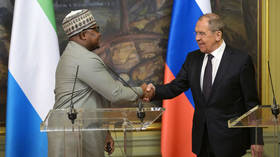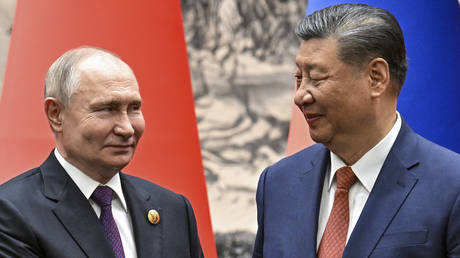Court Rejects FBI Effort to Keep Secret Records about FBI-Clinton Lawyer Meeting on Russia
by Dean Garrison, DC Clothesline:

(Washington, DC) – Judicial Watch announced today that U.S. District Judge James E. Boasberg denied a Justice Department effort to block the release of any communications between former FBI General Counsel James Baker and Michael Sussmann, a Perkins Coie law partner and former DOJ attorney, who reportedly met with Baker to share information targeting Donald J. Trump during the presidential campaign. While at Perkins Coie, Sussmann represented the Democratic National Committee (DNC) and Hillary Clinton’s campaign during the time Perkins Coie secretly paid for the development of the anti-Trump dossier the DOJ used to obtain FISA warrants to spy on the Trump campaign. The court specifically rejected the FBI’s argument that it needed to protect the “privacy” of Hillary Clinton’s lawyer.
Baker testified before the House Judiciary and Oversight Committees that he received documents as well as computer storage devices on Russian hacking from Sussmann. The Mueller report, however, concluded that there was no evidence that the Trump campaign improperly colluded with Russia.
In March 2019, Judicial Watch filed suit after the FBI failed to respond to a Freedom of Information Act (FOIA) request dated October 5, 2018 (Judicial Watch v. U.S. Department of Justice (No. 1:19-cv-00573)). The lawsuit seeks:
- Any and all records of communication between former FBI General Counsel James Baker and former Department of Justice attorney and current Perkins Coie Partner Michael Sussmann.
- Any and all records created in preparation for, during, and/or pursuant to any meeting between Mr. Baker and Mr. Sussmann.
- Any and all calendars, agendas, or similar records, either in paper or electronic format, documenting the schedule and activities of Mr. Baker.
The FBI would neither confirm nor deny the existence of records. Judicial Watch successfully argued that:
[T]he sworn testimony of Baker, the former FBI general counsel, confirms that Sussmann was sharing the same documents with the media.… Rather than privacy, this confirms that Sussmann was seeking to obtain attention for his activities. Hence, this is far from a typical case … Sussmann had no expectation of ‘personal privacy,’ as he was actively seeking publicity for himself and the information he wanted to share.
In any event, the public interest in disclosure of the existence of records is manifest.
Judge Boasberg ruled:
“[A]ny risk of invasion [of privacy] evaporated once Baker publicly testified that he had received documents from Sussmann, as well as met with and spoken to him on multiple occasions in 2016.”
In October, Baker testified before the U.S. House Judiciary and Oversight committees in October 2018, where Baker stated: “It was like — my recollection was it was a stack of material I don’t know maybe a quarter inch half inch thick something like that clipped together, and then I believe there was some type of electronic media, as well, a disk or something.”
Loading...



